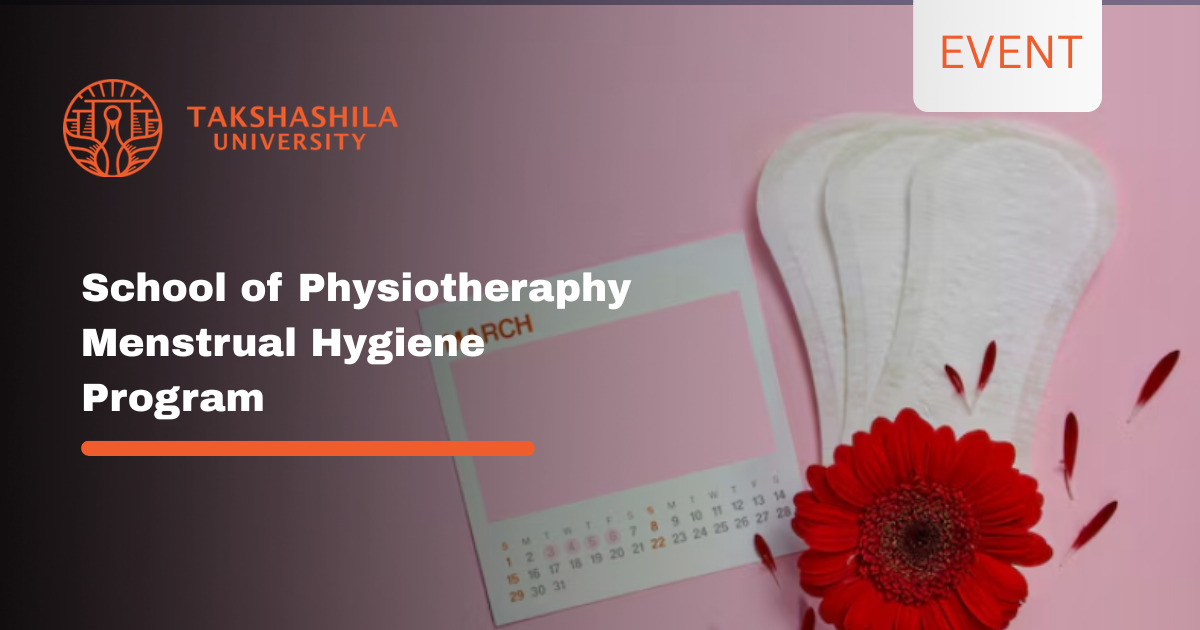Have you been confounded, struggling to keep up with your semester exams, and feeling stressed about looming arrears? Then, don’t be any more. You can clear your exams without any backlogs with a few simple tips and hacks. It’s time to take control of your studies and ace those tests like a pro.
In this blog, we’ll share some tips on how to clear your semester exams without any arrears. These are some of the tried-and-true methods for understanding exam patterns, prioritising study material wisely, creating realistic schedules that work for you, taking regular breaks while maintaining a healthy lifestyle and seeking guidance when necessary.
So let’s get started on the journey towards your academic success!
7 Simple Tips & Hacks To Clear Your Semester Exams Without Any Arrears
Exams can be stressful, and it’s natural to feel anxious or nervous during the exam period. However, excessive stress can lead to poor performance, which can ultimately result in low scoring or arrears. Follow these effective techniques that you can use to handle exam stress which leads you to clear your semester exams without any arrears.
Tip #1: Understand Your Exam Pattern And Syllabus

The first step to acing your semester exams is understanding the exam pattern and syllabus.
- Start by reviewing all relevant materials, including past papers, study guides, textbooks, and any other resources your professor recommended.
- Once you have a good grasp of what will be covered on the exam, take note of important topics and concepts that require further attention.
- Now it’s time to start focusing on those areas in more detail. You can create flashcards or make summaries for each topic so that everything is easier to memorise.
Understanding the structure of your exam will help you prepare accordingly and ensure that you’re aware of the topic when test day arrives.
Tip #2: Prioritise Your Study Material And Time Wisely

There is always too much material and too little time when preparing for exams. That’s why you need to prioritise your study material and time wisely. It means focusing on what is more important while ignoring the rest.
1. To Start Prioritising
- Divide your syllabus into categories based on their importance and difficulty level.
- Focus first on the topics that are in high weightage or those which you find difficult.
- Once done with the priority sections, move forward towards easier ones.
2. Another way of prioritising is by making a list of all subjects to be covered within a particular week or month, along with their respective deadlines or exam dates, so that you can plan accordingly.
3. Prioritisation also includes managing distractions such as social media, gaming and so on. While studying, make sure to keep these things aside because small breaks can often lead one down a rabbit hole far away from studies without even realising it.
Use this as motivation to create realistic goals for each day, week or month and make sure they fit with your overall goals.
Tip #3: Create A Realistic Study Schedule

If you are struggling to keep up with your studies amidst all the distractions of daily life, creating a realistic study schedule can be a game-changer.
- First and foremost, consider your other commitments, such as work or extracurricular activities.
- Once you have done that, divide your study material into a manageable bunch.
- Next, prioritise those bunch according to their importance and difficulty level. Don’t forget to factor in time for revision as well.
- Now that you have an idea of how much time each bunch requires, create a weekly schedule allocating specific timeslots for each subject/bunch.
- Remember to include breaks between study sessions and consistently follow the schedule.
- An excellent way to ensure that is by keeping yourself accountable by sharing it with friends or family members who can help remind you when necessary.
By creating a realistic study schedule and sticking to it vigorously, you will find yourself mastering new concepts more efficiently while reducing last-minute hurry and stress levels.
Tip #4: Take Regular Breaks And Maintain A Healthy Lifestyle

It’s usual and not a crime that studying for long hours can be exhausting and draining. That’s why taking regular breaks between study sessions is important to give your brain time to recharge.
- Taking a 10-15 minute break every hour can help boost concentration, reduce stress levels, and increase productivity.
- During these breaks, make sure you engage in activities that don’t require much mental effort; instead, take a walk outside, do some stretches or yoga poses, listen to music, or even chat with your friends or family.
- Avoid checking social media or watching TV, as those activities could lead to procrastination and distract you from getting back into study mode.
- Another important aspect of maintaining a healthy lifestyle is ensuring that you’re eating well and exercising regularly.
- Eating nutritious foods like fruits and vegetables will give your body the energy to keep going while boosting cognitive function.
- Exercise helps release endorphins, improving mood and enhancing memory retention and learning capabilities.
Remember: Staying active helps both physical & mental health!
Tip #5: Seek Help And Guidance When Necessary

As much as we want to be independent learners, there will come a point where we will need help and guidance. Seeking assistance is not a sign of weakness but rather modesty and wisdom. When you struggle with the course material or have difficulty understanding certain concepts, don’t hesitate to ask for help.
- The first step you can take is to approach your professors or teaching assistants. They are there to guide you through the course and offer valuable insights that could clarify any confusion you may have.
- You can also seek the help of classmates or family members who have better mastery over the subject.
- If neither option works, consider getting tutoring assistance from outside sources such as private tutors or online learning platforms. These resources provide in-depth explanations of complex concepts and personalised attention.
Remember: seeking help when necessary is vital to ensure academic success.
Tip #6: Stay Motivated And Confident

One of the biggest challenges that students face when preparing for exams is staying motivated and confident throughout the process. It’s easy to get overwhelmed by the amount of material you need to cover or feel discouraged after a poor performance on a mock exam. But staying positive and focused is key to your success.
- Celebrating small wins matters. Did you finally understand a difficult concept? Great! Pat yourself on the back and use that momentum as fuel for your next study session.
- Also, surround yourself with supportive people who believe in your abilities and encourage you to do well.
- Set achievable goals and keep track of your progress. This will help give you a sense of purpose and direction and keep you motivated.
- Make sure these goals are achievable but also challenging enough so that they push you beyond your comfort zone.
- Remember why you started this journey in the first place: is it because studying this subject makes you knowledgeable or because passing these exams will lead to an exciting career path?
Whatever it may be, constantly think about what motivates you the most; it will push you forward in your goal.
Tip #7: Plan For The Future And Avoid Backlogs

Planning can help you avoid backlogs in the future. Backlogs can be stressful and overwhelming, but with proper planning and time management, they can be avoided altogether.
- One way to prevent backlogs is by creating a realistic study schedule considering all your classes and assignments. This will help ensure that you stay on track throughout the semester and don’t fall behind.
- It’s also important to seek guidance from professors whenever necessary. They can provide valuable insight into which courses are essential for your future goals and how best to prepare for them.
With careful planning, determination, and support from others, you can successfully navigate through college without any arrears or setbacks in your academic journey.
With all these pro tips and tricks, you can clear your semester exams without any arrears. Chill and Ace your exams!
Explore The Path To Excellence At Takshahsila University
Takshahsila University is a renowned institution in India that spans an impressive 150 acres and offers a wide array of programs to suit your interests.
Regardless of your field of interest, Takshahsila is here to provide you with the best educational experience. Whether you have a passion for engineering, arts and sciences, agricultural sciences, physiotherapy, allied health sciences, or hotel management, our institution offers various courses that meet your field of interest.
We provide top-notch academic opportunities and support students through scholarships, both in academics and athletics.
Thinking of placement? You can rest assured that you’ll be well-prepared for the job market, as the university guarantees 100% campus placement. We have extensive partnerships with industry leaders like Wipro, IBM, Zoho, TCS, Accenture, and many others; you’ll have fantastic career prospects upon graduation.
What truly sets us apart is its dedicated faculty and exceptional management team. By offering hands-on training, we ensure you gain practical experience and are ready to tackle real-world challenges head-on.
So, if you’re ready to kick-start your journey towards a successful career, Takshahsila University is the perfect place to begin. Come and explore the path to excellence that awaits you!
Summing Up
We hope these tips and hacks will help you clear your semester exams without any arrears. Remember, success is not only about hard work but also smart work. So, be strategic in your approach towards studies and take care of yourself mentally and physically.
We want to remind you that additional resources and support are always available for students. Feel free to reach out to your professors or tutors if you need assistance with understanding the course material or planning for the future.
There are also online platforms where students can connect with each other, share study strategies, ask questions, and provide support during stressful times like exam season.
And never forget that it’s okay to ask for help when needed. Seeking guidance from others doesn’t make us weak; instead, it shows our determination to achieve success in life.
So go ahead and ace those semester exams! Best of luck!
Frequently Asked Questions(FAQs)
1. How to understand the exam pattern and syllabus to prepare effectively?
Review all relevant materials like past papers, study guides, and textbooks to understand the exam pattern and syllabus. Take note of important topics and concepts that require further attention.
2. How to prioritise the study syllabus for exams?
Prioritise your study material by dividing your syllabus into categories based on its importance and difficulty level. Focus first on high-weightage topics or those you find difficult. Create a list of subjects to be covered within a specific timeframe and plan accordingly.
3. How to create a realistic study schedule?
Consider your other commitments and divide your study material into manageable sections. Prioritise these sections and allocate specific timeslots in a weekly schedule. Include breaks between study sessions. Consistently follow the schedule to reduce last-minute stress.
4. Why is taking regular breaks and maintaining a healthy lifestyle while studying important?
Taking regular breaks allows your brain to recharge and improves concentration. Engage in activities that require minimal mental effort during breaks, like taking a walk or doing stretches. Maintaining a healthy lifestyle through nutritious eating and regular exercise boosts energy levels and enhances memory retention and learning capabilities.
5. How to seek help and guidance for subject-related doubts?
Approach your professors or teaching assistants for guidance. You can also seek help from classmates or family members who have a better understanding of the subject. Opting for private tuition will also help you to clarify any subject-related doubts.






